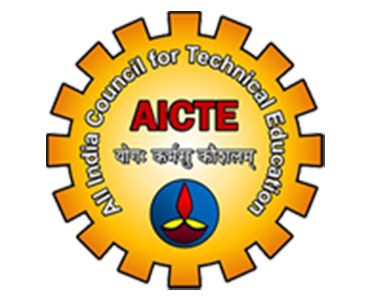PEO’S, PSO'S, PO'S
PROGRAM EDUCATIONAL OBJECTIVES (PEO’S)
The Computer Science and Engineering(Cyber Security) graduate will:
| PEO | STATEMENTS |
| PEO1 | Graduates will be prepared for a successful career in Computer Science discipline and related industry to meet the needs of the nation and leading industries and also to excel in postgraduate programs. |
| PEO2 | Graduates will continue to learn and apply the acquired knowledge to solve engineering problems and appreciation of the arts, humanities and social sciences. |
| PEO3 | Graduates will have good and broad scientific and engineering knowledge base so as to comprehend, analyse, design and create novel products and solutions for real-time applications. |
| PEO4 | Graduates will understand professional and ethical responsibility, develop leadership, utilize membership opportunities, and develop effective communication skills, teamwork skills, multidisciplinary approach and life-long learning required for a successful professional career. |
B. TECH CSE - PROGRAM SPECIFIC OUTCOMES (PSO'S)
A graduate of the Computer Science and Engineering (Cyber Security) Program will :
| PSO | STATEMENTS |
| PSO1 | Apply the knowledge of networking and information security, computer architecture, software development life cycle, database, web designing with emphasis on data structures and algorithms using programming languages and appropriate software and security tools to solve the specified needs of engineering problems. |
| PSO2 | Acquaintance of knowledge on the thrust areas such as Cyber Security and Digital Forensics, Blockchain Technologies, Cloud Computing, Internet of Things (IoT), Data Science, Machine Learning, Artificial Intelligence for solving societal and local problems with varying complexities. |
| PSO3 | Design and develop innovative prototypes or projects individually or in a team to solve the existing industrial problems using effective communication skills with due consideration to professional ethics, legal, cultural and environmental contexts for sustainable professional development. |
1. B. TECH CSE - PROGRAM OUTCOMES (PO'S)
A graduate of the Computer Science and Engineering(Cyber Security) Program will demonstrate:
| PO | STATEMENTS |
| PO1 | Engineering knowledge: Apply the knowledge of mathematics, science, engineering fundamentals, and an engineering specialization to the solution of complex engineering problems. |
| PO2 | Problem analysis: Identify, formulate, review research literature, and analyze complex engineering problems reaching substantiated conclusions using first principles of mathematics, natural sciences, and engineering sciences. |
| PO3 | Design/development of solutions: Design solutions for complex engineering problems and design system components or processes that meet the specified needs with appropriate consideration for the public health and safety, and the cultural, societal, and environmental considerations. |
| PO4 | Conduct investigations of complex problems: Use research-based knowledge and research methods including design of experiments, analysis and interpretation of data, and synthesis of the information to provide valid conclusions. |
| PO5 | Modern tool usage: Create, select, and apply appropriate techniques, resources, and modern engineering and IT tools including prediction and modelling to complex engineering activities with an understanding of the limitations. |
| PO6 | The engineer and society: Apply reasoning informed by the contextual knowledge to assess societal, health, safety, legal and cultural issues and the consequent responsibilities relevant to the professional engineering practice. |
| PO7 | Environment and sustainability: Understand the impact of the professional engineering solutions in societal and environmental contexts, and demonstrate the knowledge of, and need for sustainable development. |
| PO8 | Ethics: Apply ethical principles and commit to professional ethics and responsibilities and norms of the engineering practice. |
| PO9 | Individual and team work: Function effectively as an individual, and as a member or leader in diverse teams, and in multidisciplinary settings. |
| PO10 | Communication: Communicate effectively on complex
engineering activities with the engineering community and with society at large, such as, being able to comprehend and write effective reports and design documentation, make effective presentations, and give and receive clear instructions. |
| PO11 | Project management and finance: Demonstrate knowledge and
understanding of the engineering and management principles and apply these to one’s own work, as a member and leader in a team, to manage projects and in multidisciplinary environments. |
| PO12 | Life-long learning: Recognize the need for, and have the preparation and ability to engage in independent and life-long learning in the broadest context of technological change. |







